Now Playing
Current DJ: Willie McDonagh
Grupo Naidy Vamos a Adorar a Antonio (Let's Worship Saint Anthony) from Arriba Suena Marimba: Currulao Marimba Music From Colombia (Smithsonian Folkways) Add to Collection
Requests? 773-DJ-SONGS or .(JavaScript must be enabled to view this email address)
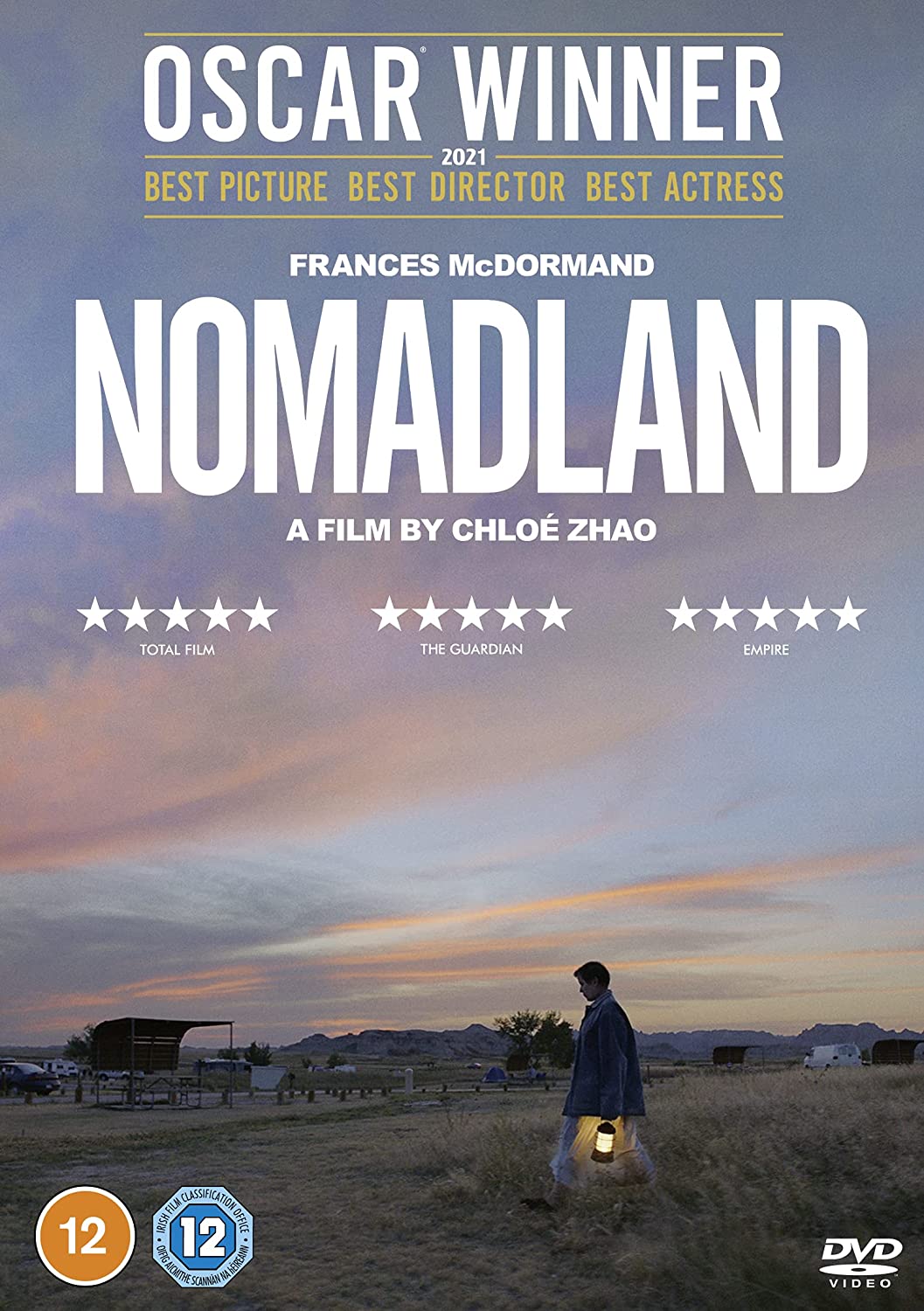 Welcome to The Fourth Wall, CHIRP's e-conversation on cinema. This week's subject is the 2020 Oscar-winning film Nomadland.
Welcome to The Fourth Wall, CHIRP's e-conversation on cinema. This week's subject is the 2020 Oscar-winning film Nomadland.
This edition is written by CHIRP Radio volunteers Kevin Fullam and Clarence Ewing.
Kevin:
When you grow up with all the trappings of middle-class suburbia, it's hard to imagine a Shadow America out there, roaming the land. Poor neighborhoods? Sure. The homeless? Absolutely. But not three million transients (according to the BBC) who shuttle from town to town across our country, living out of their vehicles and subsisting on odd jobs along the way.
While you'd never describe these drifters as wealthy, they're largely not indigent either. And for the most part, their decisions to eschew the conventions of modern living don't seem to be born out of financial calamity. Theirs is a conscious lifestyle choice. Who are these people? What drives them? This is the backdrop of director Chloé Zhao's Nomadland, based on a 2017 novel of the same name by Jessica Bruder.
Like The Rider, Zhao's previous film, Nomadland might as well be cinéma vérité as it follows the life of Fern (Frances McDormand) while she travels the country in her rickety van. Outside of an intertitle which explains the collapse of her Nevada hometown following a mine closure, the exposition is minimal, and much of the film revolves around Fern's survival. Today's work might be at an Amazon distribution center, while next month's employer could be a state park. After that? Perhaps a gig as a line cook.
All the while, her van needs upkeep. Rinse. Repeat. Fern ain't the loquacious type, and her backstory is parceled out in dribs and drabs. Eventually you learn that she lost her husband right around the time when the town went under, which might account for her steely, detached disposition.
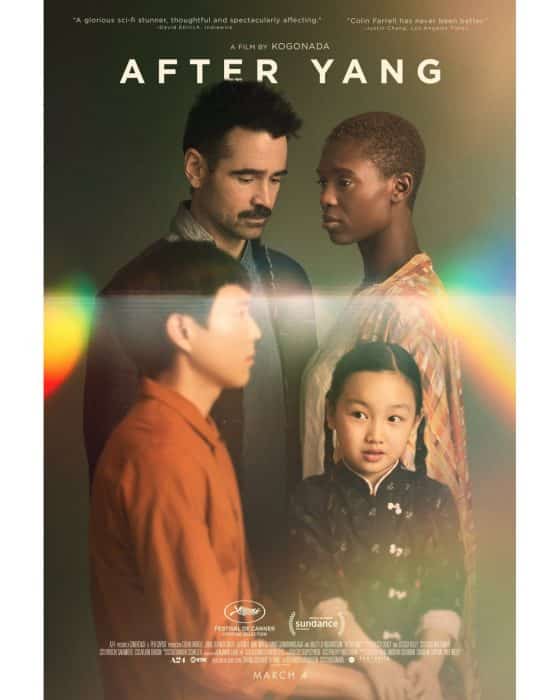 Welcome to The Fourth Wall, CHIRP's e-conversation on cinema. This week's subject is the 2021 film After Yang.
Welcome to The Fourth Wall, CHIRP's e-conversation on cinema. This week's subject is the 2021 film After Yang.
This edition is written by CHIRP Radio volunteers Kevin Fullam and Bobby Evers.
________________________________________________________________
"Are you happy, Yang?"
-- "I don't know if that's the question for me."
-------
"Did he ever want to be human?"
-- "That's such a human thing to ask, isn't it? We always assume that other beings would want to be human. What's so great about being human?"
________________________________________________________________
Kevin:
As the idea of artificial intelligence and androids comes closer to fruition, we seem to be shifting to a kinder, gentler species of robots in Hollywood, no?
The days of T-800s and renegade replicants are on the wane, while a growing number of today's celluloid "technos" -- whether they exist in the ether as in Her, or in corporeal form like the title character of After Yang -- no longer have designs on world domination. As Samantha of Her alludes to, well... what would be the point from a computer's point of view? It's far more likely that an autonomous AI would consider humans not worth the bother. What Yang and others of its ilk can offer us, however, is reflection on what it means to be human.
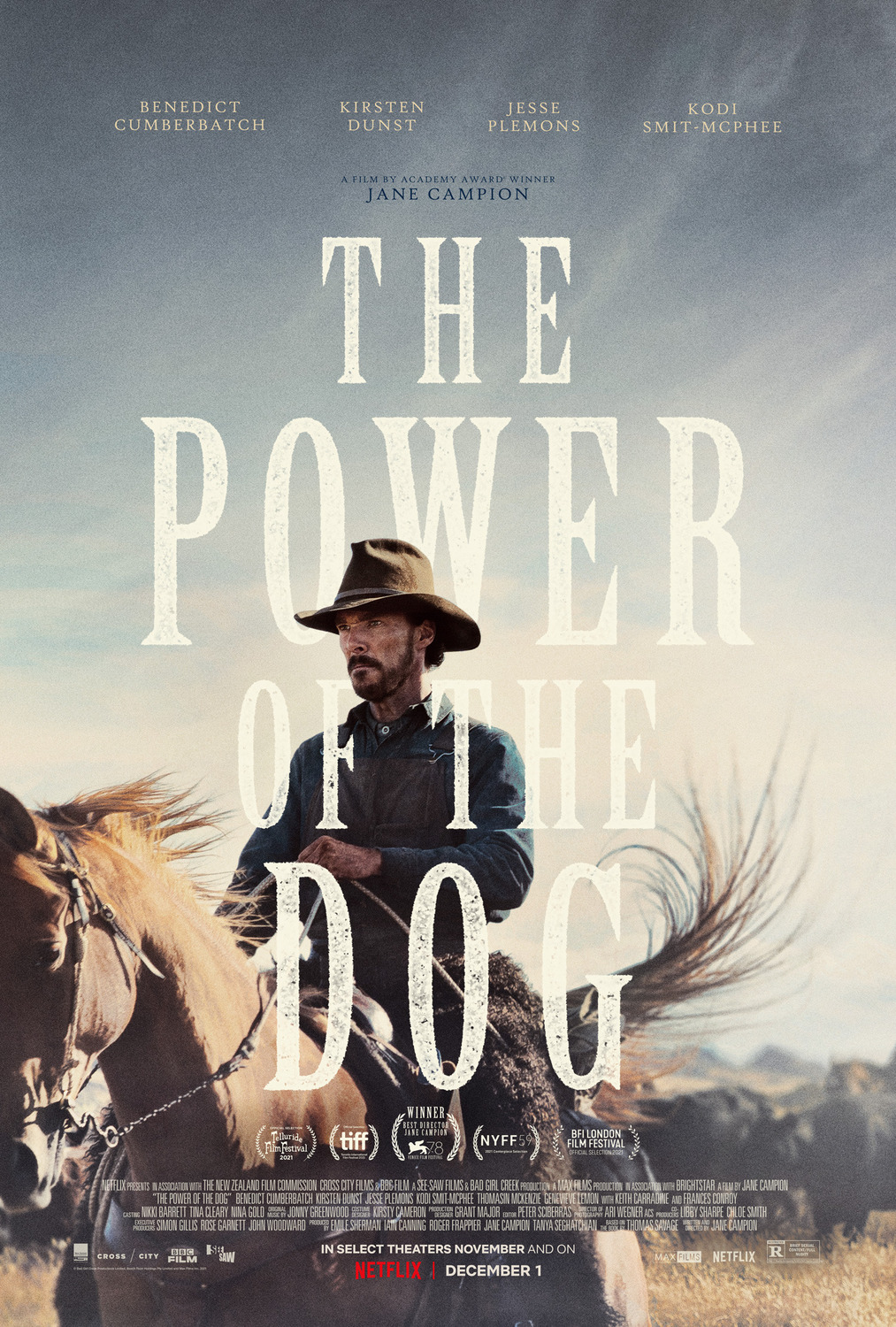 Welcome to The Fourth Wall, CHIRP's e-conversation on cinema. This week's subject is the 2021 film The Power of the Dog.
Welcome to The Fourth Wall, CHIRP's e-conversation on cinema. This week's subject is the 2021 film The Power of the Dog.
This edition is written by CHIRP Radio volunteers Kevin Fullam and Clarence Ewing.
Clarence Ewing:
In the opening scenes of Jane Campion’s 2021 Oscar-nominated film The Power of the Dog, the audience is treated to a familiar site in movie history: a good old-fashioned cattle drive. It’s 1925, and a group of herders leads a river of beef along the lonesome trail, nothing but blue skies and open scenery for miles. Not many Hollywood images get more American than that.
The group is led by two brothers, Phil (Benedict Cumberbatch) and George (Jesse Plemmons). Although the men under his command like and respect him, it’s obvious that Phil is a walking mix of tension and bile. If something annoys him, he’ll let that something know it, whether it’s his less-aggressive brother who he constantly insults and belittles, or the skinny, awkward-looking young man who serves the crew dinner one day at a hotel along the trail (Kodi Smit-McPhee), and who is the son of the establishment’s owner Rose (Kirsten Dunst).
Along the way, other names are mentioned: Old Lady and Old Gent Burbank. The Governor. Bronco Henry. The audience gets more details of these characters and how they relate to each other. Phil is a constant presence in everyone’s life, whether he’s physically there or not, and that fact drives the other characters’ actions and events forward.
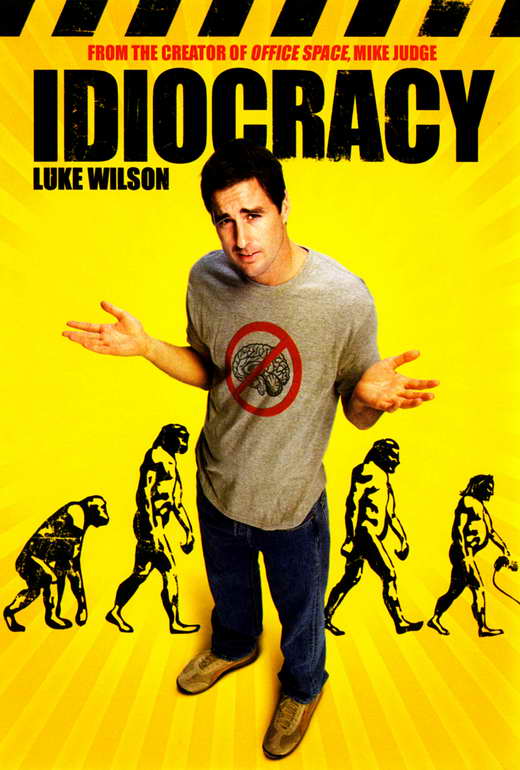 Welcome to The Fourth Wall, CHIRP's e-conversation on cinema. This week's subject is the 2006 Science Fiction comedy Idiocracy.
Welcome to The Fourth Wall, CHIRP's e-conversation on cinema. This week's subject is the 2006 Science Fiction comedy Idiocracy.
This edition is written by CHIRP Radio volunteers Kevin Fullam and Bobby Evers.
Cult film: "A movie that has developed a small, but significant and thoroughly dedicated, fanbase that grows over time. This fanbase may form an elaborate subculture, members of which engage in repeated viewings, dialogue-quoting, and audience participation."
Kevin Fullam:
I'm not sure I'd want to wander into any event that involved audience participation in Idiocracy (particularly where its "trash avalanches" are concerned), but from a popularity standpoint, it fits the bill.
With no advance screenings and a very small theatrical release, Idiocracy grossed just under a half-million dollars when it debuted in 2006. But much like Office Space, director Mike Judge's preceding film, Idiocracy picked up steam on the DVD circuit in both money and critical acclaim, and some today consider it a rather prescient, subversive comedy.
For the uninitiated, Idiocracy tells the story of Army peon Joe Bauers (Luke Wilson), who's selected to be the guinea pig in a hibernation device that's supposed to keep him in stasis for exactly one year.
A prostitute named Rita (Maya Rudolph) gets roped into the experiment as well (don't ask), but there's a malfunction, and the duo doesn't wake up until 500 years have passed.
Welcome to The Fourth Wall, CHIRP's e-conversation on cinema. This week's subject is the Spike Lee classic film Do the Right Thing (1989)
This edition is written by CHIRP Radio volunteers Kevin Fullam and Clarence Ewing.
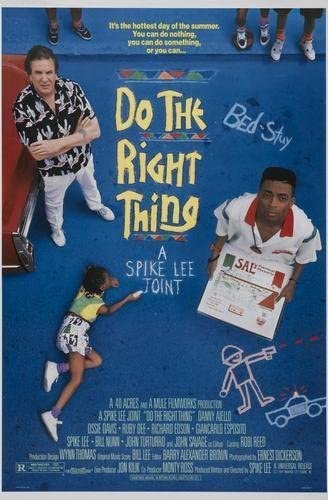 Kevin:
Kevin:
"My people. My people. What can I say? Say what I can. I saw it but I didn't believe it. I didn't believe what I saw. Are we gonna live together? Together, are we gonna live?"
Those are the closing words of Mister Señor Love Daddy (Samuel L. Jackson), radio DJ and pseudo-narrator of Do the Right Thing -- Spike Lee's third feature film and the one that catapulted him to national prominence in 1989.
Do the Right Thing garnered Academy Award nominations for Lee (Best Original Screenplay) and Danny Aiello (Best Supporting Actor), though Lee felt particularly slighted at the Oscars next year. And understandably so: “When Driving Miss Motherf—-ing Daisy won Best Picture, that hurt." However, as he added years later, "no one’s talking about Driving Miss Daisy now.”